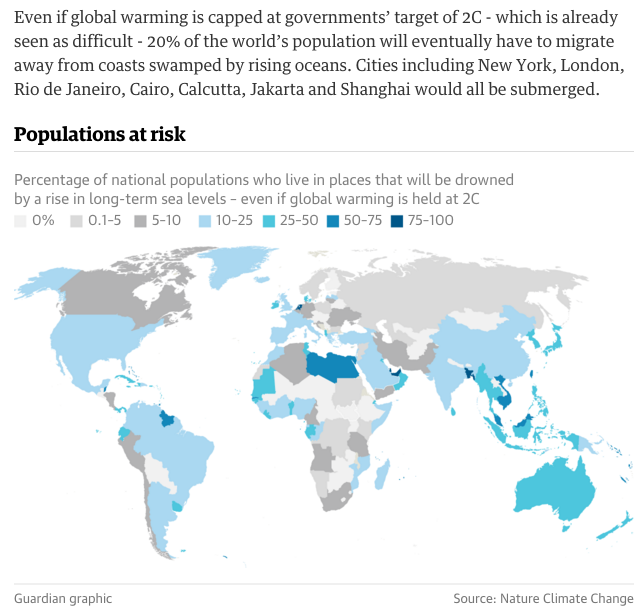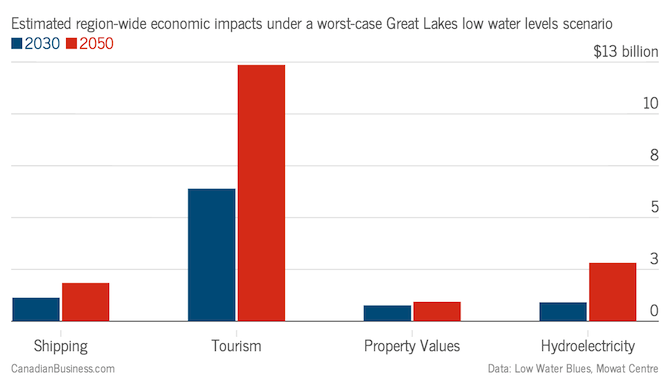
via The Guardian, UK
Cleveland Heights, Ohio, USA, is 950 feet above sea level. We could probably take tens of thousands of climate refugees. I do not know what the effect of climate cahnge will be on the great lakes. Hey, I can look it up!
Forbes Magazine tells me “the great lakes are benefitting from climate change.”
Nature Geoscience, February 8, 2016 – Cooling and societal change during the Late Antique Little Ice Age from 536 to around 660 AD
PDF: Confronting Climate Change in the Great Lakes Region – Union of Concerned Scientists, Ecological Society of America
Glacial Isostatic Adjustment (i.e.,Glacial Rebound): The Great Lakes basin is, in effect, tilting over time as the result of the land rebounding after regional glaciers retreated about 10,000 year ago. The southwestern end of the basin is falling relative to the center of where the past glacier existed. This makes water levels in Milwaukee, Wisconsin, for example, appear to be rising. At the same time, water levels in the northeastern portion of the basin (e.g., Georgian Bay, Ontario) appear to be dropping. This rebound accounts for about one foot of water level change (rising or dropping) in a person’s lifetime (International Upper Great Lakes Study 2009).
Climate change: Annual average air and water temperatures are rising and future climate models
project continued warming, which contributes to higher rates of evaporation. Projected future
precipitation amounts, rates, and annual variability in timing of wetter and drier periods vary by
model.
But what does all of this mean for water levels in the Great Lakes? This is an important question; after all, our current infrastructure around the Lakes, from ports and canals to beaches and boardwalks, were designed and built based on the water levels experienced throughout the Twentieth Century. This is a far more complicated question than the one facing coastal cities along the oceans that are contending with sea level rise due to glacial melt and thermal expansion of water. Water levels in the Great Lakes will be determined almost entirely by levels of precipitation and evaporation, as well as by the quantities of water removed from the watershed through consumption or diversion. A further consideration is that water levels are controlled at two points; at the outflow from Lake Superior, and at the outflow from Lake Ontario, as regulated by the International Joint Commission. This suggests that the Lake Superior, as the upstream lake, will serve as the bellwether for the rest of the lakes. How Will Climate Change Affect the Great Lakes? Earth Institute, Columbia Univ.

